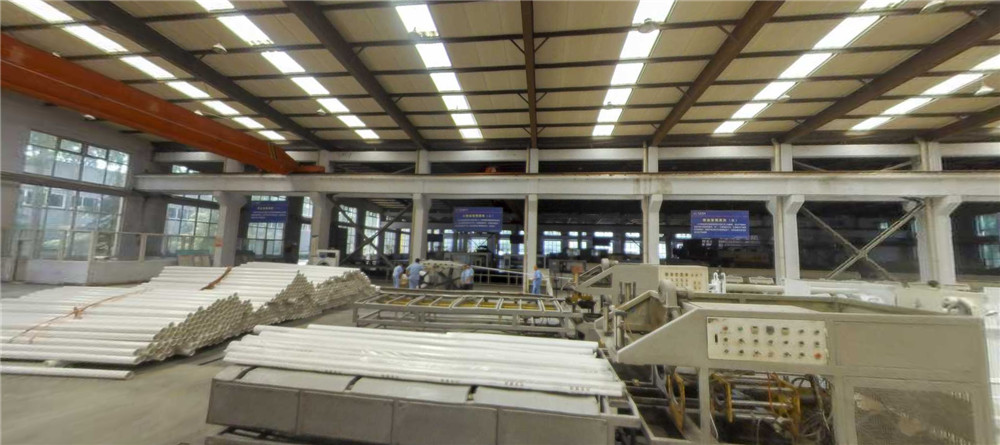พ.ย. . 28, 2024 07:40 Back to list
Electrical PVC Pipe Applications and Benefits in Modern Construction and Infrastructure
Understanding Electrical PVC Pipes A Comprehensive Overview
Electrical installations require careful consideration of materials, ensuring safety, durability, and efficiency. One of the most prevalent materials used for electrical conduits is PVC (polyvinyl chloride) pipe. This article provides a detailed overview of electrical PVC pipes, exploring their properties, advantages, applications, and installation considerations.
What is Electrical PVC Pipe?
Electrical PVC pipe is a type of conduit designed specifically to house and protect electrical wires and cables. Made from polyvinyl chloride, it is a lightweight, durable, and cost-effective option for various electrical applications. PVC pipes are available in various sizes and thicknesses, allowing for a wide range of applications in residential, commercial, and industrial settings.
Properties of PVC Pipe
1. Chemical Resistance PVC is inherently resistant to many chemicals, making it suitable for environments where exposure to corrosive substances may occur.
2. Non-Conductive As a non-conductive material, PVC helps prevent electrical hazards, ensuring that electrical installations are safer for both users and maintenance personnel.
3. Lightweight PVC pipes are significantly lighter than metal conduits, making them easier to transport, handle, and install.
4. UV Stability While PVC can degrade when exposed to intense sunlight, modern formulations often include UV stabilizers, enhancing their outdoor usability.
5. Cost-Effective Generally, PVC pipes are less expensive than metal alternatives, leading to cost savings in both materials and installation processes.
Advantages of Using PVC for Electrical Applications
1. Ease of Installation The lightweight nature of PVC, combined with the simplicity of cutting and joining, means that installations can be completed quickly and efficiently.
2. Corrosion Resistance Unlike metal conduits, PVC does not rust or corrode, which can prolong the lifespan of electrical installations, especially in harsh environments.
3. Impact Resistance PVC pipes can withstand impact and are less likely to be damaged during handling or installation compared to fragile materials.
electrical pvc pipe

4. Fire Retardance Electrical PVC pipes are designed to resist ignition and slow down the spread of flames, which can provide extra safety in case of electrical faults.
5. Low Maintenance Once installed, electric PVC systems require minimal maintenance, reducing costs and labor over time.
Applications of Electrical PVC Pipe
Electrical PVC pipes are versatile and used in various applications
- Residential Wiring Used in home electrical systems to route wiring safely and efficiently. - Commercial Buildings Commonly utilized in offices, retail spaces, and schools, ensuring proper cable management and protection. - Industrial Settings Ideal for factories and warehouses where heavy machinery might produce vibrations or impact. - Outdoor Installations With proper UV resistance, PVC pipes can be used for external wiring applications, offering protection against environmental factors.
Installation Considerations
While installing electrical PVC pipes, several key considerations must be addressed
1. Sizing Choosing the correct diameter is critical to ensure sufficient space for wire bundling while preventing overheating due to overcrowding.
2. Bends and Joints Careful planning of bends and joints is essential to maintain optimal airflow and reduce strain on electrical cables.
3. Mounting Ensure that PVC pipes are securely mounted using appropriate brackets to prevent sagging or movement over time.
4. Local Codes Always consult local electrical codes and regulations to ensure compliance with safety standards and installation practices.
5. Sealing When connecting pipes, ensure that joints are adequately sealed to prevent moisture ingress, which could compromise electrical integrity.
Conclusion
Electrical PVC pipe has become a staple in electrical installations due to its unique properties and performance advantages. Its combination of safety, durability, and affordability makes it an excellent choice for any wiring project. As with all construction materials, proper installation practices must be followed to maximize the benefits and ensure long-term reliability. Understanding the characteristics and applications of electrical PVC pipes enables professionals and DIY enthusiasts alike to make informed decisions for their electrical systems.
-
Premium PVC Soft Sheets: Clear, Flexible & Durable
NewsAug.12,2025
-
Premium PVC Round Rods: Durable, Chemical Resistant, Easy to Machine
NewsAug.11,2025
-
PP U-channel: Chemical-Resistant, Lightweight & Durable
NewsAug.10,2025
-
Transparent PVC Pipe: Clear Flexible Tubing for Fluids
NewsAug.09,2025
-
Durable PP Rigid Sheet: Versatile & High-Quality Plastic Panels
NewsAug.08,2025
-
Premium Glossy PP Rigid Sheet – Durable & Versatile
NewsAug.07,2025

